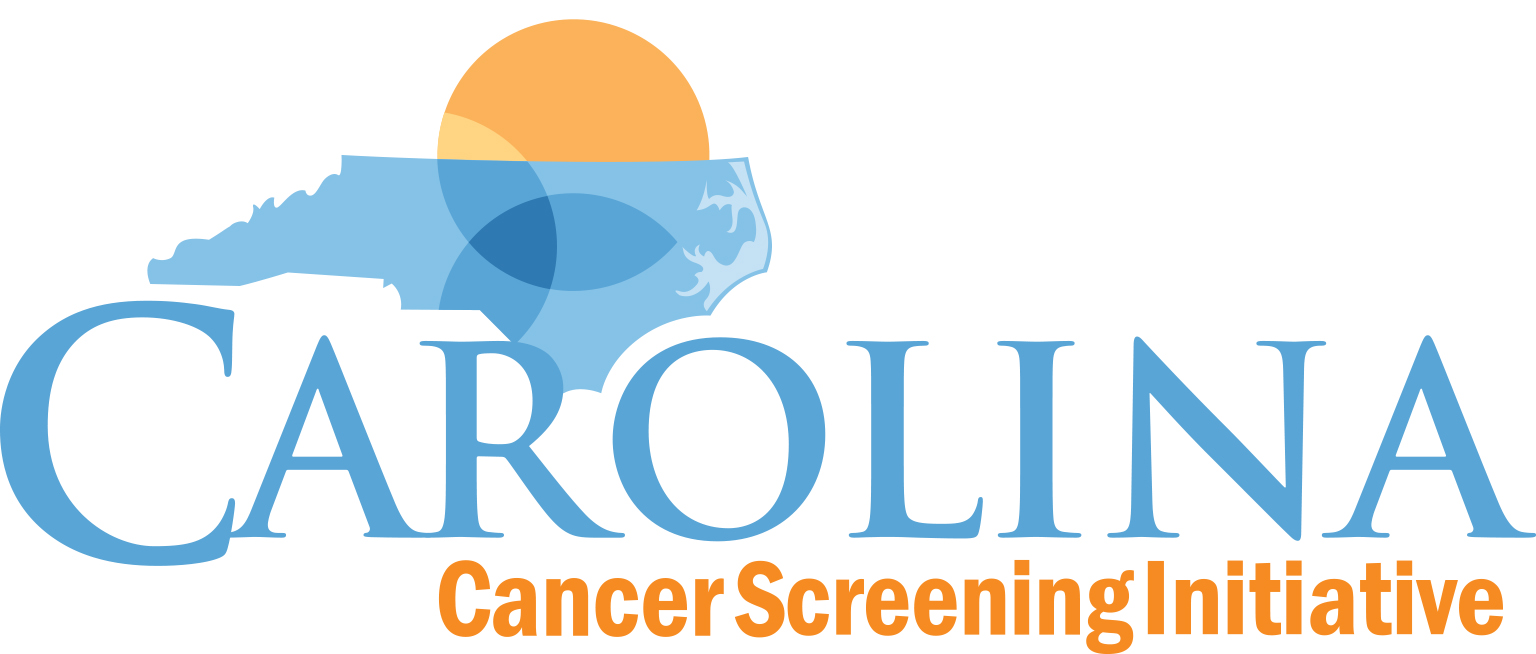The Carolina Cancer Screening Initiative, led by Daniel S. Reuland, MD, MPH, brings together UNC Lineberger’s clinicians and public health researchers with community partners to implement evidence-based cancer screening programs to reduce cancer burden among North Carolinians.


University of North Carolina Lineberger Comprehensive Cancer Center researchers have launched an ambitious multi-pronged initiative to improve cancer screening rates in North Carolina, with the goal of reducing cancer-related deaths.
The Carolina Cancer Screening Initiative (CCSI), led by Daniel S. Reuland, MD, MPH, brings together UNC Lineberger’s clinicians and public health researchers with community partners to implement evidence-based cancer screening programs to reduce cancer burden among North Carolinians. A key project of the initiative focuses on reducing the colorectal cancer mortality gap in the northeastern part of the state.
Colorectal cancer screening has proven effective in reducing cancer deaths. The American Cancer Society reported that screening contributed to a substantial decline in colorectal cancer deaths in the United States between 1976 and 2014. Although regular screening is recommended for people aged 50 and 75 years, gaps persist in screening rates by race and geographic region, and the highest rates of colorectal cancer mortality remain primarily concentrated in rural communities.
“Experts agree that the current colon cancer screening tests are not only really good at detecting cancer and preventing unnecessary deaths, but they are also cost-effective and possibly even cost-saving in the long-term,” said UNC Lineberger’s Stephanie Wheeler, PhD, an associate professor in the UNC Gillings School of Global Public Health and CCSI investigator. “There is really no controversy about it. Despite it being a best-case screening scenario, too few people are being screened.”
One of the major catalysts for the UNC Lineberger effort was an American Cancer Society-led study in 2015 that identified an 11-county area of northeastern North Carolina as one of three hotspots in the country with elevated colorectal cancer death rates. An initial focus of CCSI will be to address this geographic disparity, as well as racial and ethnic disparities that negatively impact colorectal cancer screening and mortality, in North Carolina. Researchers are working to identify and launch initiatives that focus on the specific screening needs of local areas, such as these hotspots.
Some of the program initiatives include:
In Hertford and surrounding counties in the northeastern part of the state, UNC Lineberger researchers, including Reuland and Alison Brenner, PhD, MPH, associate program director of CCSI, are working with health care leaders to address screening barriers through stakeholder meetings. They are planning to hire a population health manager to work in the hotspot, to improve access to endoscopy services in the region, as well as seek additional funding for screening programs and implementation studies, Reuland said.
Wheeler and Brenner, in partnership with Community Care of North Carolina and the Mecklenburg County Health Department, also have launched an effort to boost screening rates for Medicaid recipients in Mecklenburg County in southwest North Carolina. Researchers mailed reminder letters, with or without stool-based colorectal cancer test kits, to Medicaid recipients who were age-eligible for, but not up-to-date with, screening. They are measuring the reach and cost effectiveness of directly mailing test kits to patients.
The stool-based mailed test does not require the same kind of intense preparation as colonoscopy, or anesthesia, and it can be done at home. Brenner said researchers believe the test could help overcome barriers to screening for people who are lower-income, cannot take time off work for a more invasive procedure, or who may be barred from some medical practices because of their insurance type.
They launched the effort after a study led by Wheeler and published in 2014 found that Mecklenburg, the state’s most populous county, was one of two counties in the state that had the highest concentration of endoscopy facilities, but relatively low predicted likelihood of colorectal cancer testing for people with Medicaid and other insurance types.
The researchers also are focused on testing an approach they used to boost screening rate at community health clinics in North Carolina and New Mexico that largely served patients who were Latino, low income, on Medicaid or lacking insurance. Reuland, Brenner and colleagues developed a strategy that used bilingual video about screening options and one-on-one “patient navigation” support to help patients get reminders or scheduled for screening. This approach increased screening rates to 68 percent, which was 41 percentage points higher than the group who did not receive the intervention. They published their findings in the Journal of the American Medical Association Internal Medicine in July.
“We’ve shown that if we structure care such that we catch patients right when they are seeing their doctor, systematically provide them with clear and compelling information about screening and what their choices are, and then give them the support they need to get screening test they prefer, we can substantially improve rates,” Reuland said.
Wheeler underlined that successful interventions will be specifically tailored to local needs.
“We see huge variation in screening rates by not just where people live, but by income, by insurance status, by race, by ethnicity, and the kinds of interventions that are going to work to bring everybody up to the recommendations are not going to be the same because the barriers are different,” she said. “To move the needle on colorectal cancer screening, we are going to have to be much more cognizant of the needs of the local population.”
Other investigators engaged in the Carolina Cancer Screening Initiative include May Kuo, PhD, MPH, Anne-Marie Meyer, PhD, Chris Baggett, PhD, Leah Frerichs, PhD, Jennifer Leeman, DrPh, MPH, MDiv, Catherine Rohweder, DrPh, Teri Malo, PhD, and Seth Crocket, MD MPH.
CCSI receives infrastructure support from the University Cancer Research Fund, a nation-leading investment to stimulate cancer research and reduce North Carolina’s leading cause of death. Specific project funding has come from the American Cancer Society, the Centers for Disease Control and Prevention, and the Colon Cancer Coalition.
